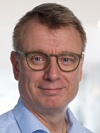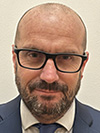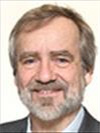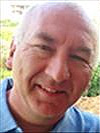Date: Sunday, March 23
Time: 9:00 a.m. to 1:30 p.m.
Location: MGM Grand Conference Center, Room 102
Sponsored by: TMS Aluminum Committee
Course Description and Scope
The physical, mechanical, and chemical properties of cathode lining materials—including the carbon cathode blocks, ramming paste, and refractories used in the aluminum electrolysis cells—are crucial for both economic and environmental aspects of the aluminum production process. This course will introduce the physical, mechanical, and thermal properties of the cathode lining materials used in industry, covering the different types of carbon cathode blocks, ramming paste, and refractories. Chemical reactions causing the most important degradation mechanisms for the different materials will be covered with a focus on the lifetime of the pot lining and heat balance of the cells. Also, laboratory testing focusing on test methods, standards, and specifications for cathode lining materials to verify their suitability as cathode lining materials in aluminum electrolysis cells, etc. will be explained. Finally, industrial experience with lining materials will be included.
Participants will receive a post-event digital credential.
Course Outline
- Refractories in aluminum electrolysis cells: barrier bricks, Si3N4-bonded SiC blocks, castables, and mortar.
- Carbon cathode materials in aluminum electrolysis cells: Carbon cathode blocks, graphite sidewall blocks, and ramming paste.
- Degradation mechanisms of cathode lining materials: Conditions and reaction paths in the bottom lining and Si3N4-bonded SiC and graphite sidewall blocks.
- Testing of cathode lining materials including cathode blocks, ramming paste, barrier bricks and Si3N4-bonded SiC blocks: test methods, standards, and specifications.
- Industrial experience with cathode lining materials.
Who Should Attend?
This course will benefit smelter operators; process and cell design engineers; suppliers of the different cathode lining materials including carbon cathode blocks, ramming paste, and refractories; researchers; and students related to aluminum reduction technology and carbon and refractory materials science.
Instructors

Søren Bertel
Skamol A/S
About the Instructor
Søren Bertel is currently research and development manager at Skamol A/S. He has more than 20 years of experience in various industries, including 14 years in different positions within the development and application of high-performance thermal insulation materials in various high temperature industries—the primary aluminum industry in particular.

Nicolas Gros
Technical Service Director
Tokai COBEX Savoie SAS
About the Instructor
Nicolas Gros is currently the technical service director at Tokai COBEX Savoie SAS. He has worked for 25 years in the aluminum and cathode industry, including as relining expert (RTA), business development and sales—cathode solution development at Tokai COBEX. He earned a university degree in chemistry (2001), a manufacturing engineer degree at Ecole de Mines (2011), and a master’s degree in Strategic Business Development (2012).

Arne Petter Ratvik
Senior Research Scientist
SINTEF Industry
About the Instructor
Arne Petter Ratvik is a senior research scientist at SINTEF Industry, Metal Production and Processing, in Trondheim, Norway. He has his MSc and PhD in inorganic chemistry from NTNU (Norwegian University of Science and Technology) followed by a post doc at University of Tennessee, all related to molten salt chemistry and electrolytic production of light metals. After the post doc he worked in the industry, six years with Elkem mostly related to pyrometallurgy, and seven years with Glencore Nikkelverk related to aqueous electrochemical processes and production management. After the industrial period, he has been with SINTEF, except for a four-year term as Head of Department of Materials Science and Engineering at NTNU. Current research interests are mainly within materials chemistry related to electrochemical production of metals. He has been project manager of several large projects co-financed by industry and co-authored more than 100 papers. He also coordinated the EU Horizon 2020 project SecREEts related to a novel rare earth value chain and is now coordinating the EU Horizon Europe SUPREEMO project related to a rare earth value chain from mine to magnets. He has served TMS as session chair four times, subject chair for the Electrode Technology in 2015 and Editor of Light Metals in 2017.

Ketil Rye
Smelting Technology Manager
Alcoa Center of Excellence
About the Instructor
Ketil Rye is currently smelting technology manager, Alcoa Center of Excellence. He has 30 years of experience in diverse positions in Alcoa covering most fields in primary production of aluminum. The various positions have included both technical as well as leadership roles. He also has several years of experience in the field or research administration. He has published around 25 scientific papers as main author and co-author.

Samuel Senanu
Senior Research Scientist
SINTEF Industry
About the Instructor
Samuel Senanu is a senior research scientist at the research team Electrolysis and High Temperature Materials within the Metals Production and Processing department at SINTEF Industry. He has over 15 years working experience including ten years from the aluminium industry (ALCOA Norway) as a process engineer responsible for operations in the potlines, designing aluminium electrolysis cells, research and development, leadership, and mentoring. His research areas at SINTEF during the last five years include aluminium reduction processes, rare earth elements (REE) value chains, carbon and refractory materials testing and analysis using different ISO, ASTM, etc. standards. He has authored and co-authored more than 20 papers, including 11 papers presented at TMS.

Asbjørn Solheim
Retired Chief Scientist
SINTEF Industry
About the Instructor
Asbjørn Solheim is retired chief scientist at the research team Electrolysis and High Temperature Materials at SINTEF Industry. He has more than 45 years of experience. His main research interests are molten salts, electrochemistry, thermodynamics, and transport processes applied in the field of primary aluminium production—in particular, bath chemistry and sideledge dynamics. He has authored and co-authored more than 160 papers, including 80 papers presented at TMS from 1983 to present.

Egil Skybakmoen
Research Manager
SINTEF Industry
About the Instructor
Egil Skybakmoen is currently research manager for the research group Electrolysis and High Temperature Materials at SINTEF. He has more than 40 years of experience within several primary Al research topics. He has published around 50 scientific papers and around 30 papers within TMS as main author and co-author. His special expertise within refractories is Nitride bonded SiC sidelining materials where he has nine scientific papers and numerous clients for testing and analysis of the different commercial materials existing in the world market. He has also been involved in research activities regarding carbon cathode wear mechanism, inert anodes, wettable cathodes, bath chemistry, alumina dissolution, waste streams, gas emissions etc.
How Do I Register?
Courses and workshops are open exclusively to registrants for the TMS 2025 Annual Meeting & Exhibition and are included as part of the conference registration fee. If you wish to participate in one of the offered courses, please make your selection when you register for TMS2025. All courses are held on Sunday, March 23, so make your travel plans accordingly.
Register for TMS2025